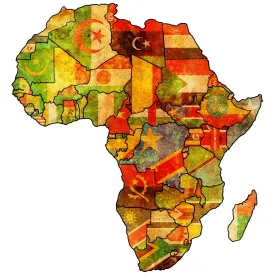Two of the world’s fastest-growing economies — Cote d’Ivoire and Tanzania — held presidential elections this week. Both countries have re-elected the governing party but the difference between their two experiences was as far apart as the countries themselves.
In Cote d’Ivoire, incumbent president Alassane Ouattara has won a second five-year term by a landslide. It is notable that the election is the nation’s first peaceful presidential election in more than two decades but Ouattara’s re-election was not a surprise. Under his leadership, the country “has made a remarkable economic recovery since the end of the post-electoral crisis in 2011” and has enjoyed an average annual GDP growth of over 8 percent. Cote d’Ivoire is regarded as a “fertile soil for U.S. investment” and has attracted the attention of investors who are from a wide range of countries and interested in an equally wide range of sectors such as agribusiness, construction, infrastructure, manufacturing, mining, and oil and gas exploration and production. Impressive economic growth was a hallmark of Ouattara’s first term but, in his second term, he will need to work harder to ensure that the growth is inclusive and that real progress is made on national reconciliation.
On the other side of the continent, Tanzania saw its most tightly contested elections since Tanganyika gained independence in 1961. John Magufuli, the candidate of the long-time governing CCM party, has been declared the winner but his mandate already is under question. Although external election observer groups generally found the electoral process to be fair and credible, the observers from the European Union did express some reservations about the transparency of the process. The opposition party has rejected the results outright. And election results in the semiautonomous archipelago Zanzibar have been annulled on grounds of irregularities and violations. Notwithstanding that CCM appears to have retained power at the presidential level in Tanzania, several key ministers lost their parliamentary seats to the opposition. The shock defeats felled the ministers for agriculture and investment as well as the deputy ministers for education and health. Failing to secure a decisive victory in these elections means CCM may face domestic challenges in its ongoing negotiations with international oil and gas companies regarding the development of Tanzania’s recently discovered reserves.



 />i
/>i

